Best Advice On How To Successfully Start Your Online Business
By Anastasia Belyh
January 10, 2024 • Fact checked by Dumb Little Man

The global effects of the Great Lockdown and the world’s subsequent transition into an increasingly agile and digital culture has spawned the advent of entrepreneurship and new online businesses.
A great number of full-time jobs were terminated due to the economic constraints generated by the pandemic for businesses in most industries, particularly SMEs.
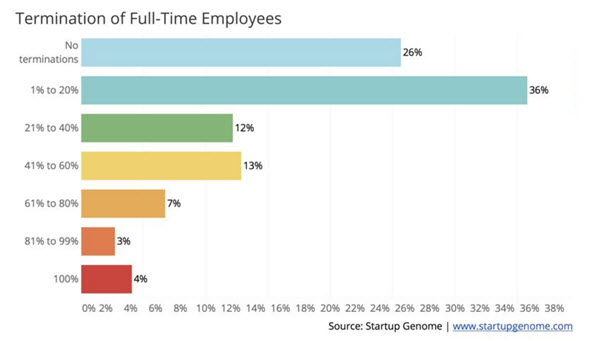
This, coupled with the innovativeness of a truly groundbreaking digital era, plus an increasing number of individuals without full-time jobs, and subsequently more time to focus on personal goals, have fostered a rapidly rising generation of new business owners.
Add to this fact, the financial need to discover creative sources of income and the numbers only keep growing, with most of the new endeavors gearing towards online businesses.
Millennials and Gen Z are the most likely to be in this crowd due to a higher exposure to digital conveniences and a more progressive mindset.
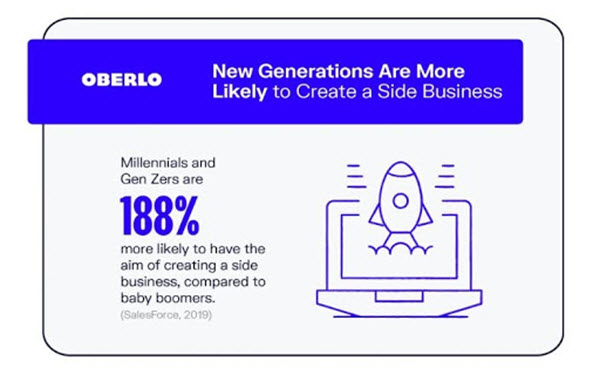
So anyone creating an online business should understand that it’s a growing and increasingly crowded culture, with as many opportunities to succeed as there are many landmines.
In fact, a higher percentage of new small businesses fail than succeed.
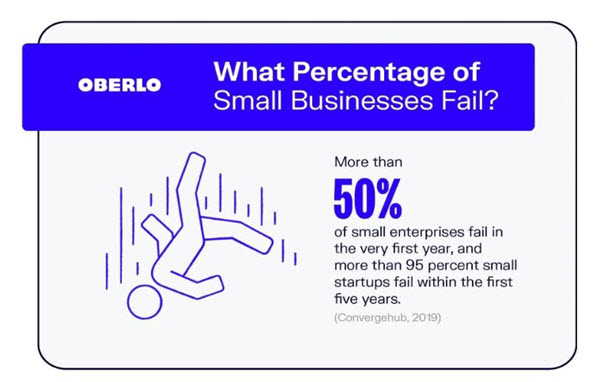
This is not in any way to deter you as you plan to start your new online business, it’s to make you understand the levels of challenges you’re about to face and the fact that you need more than just a basics manual if you are to truly survive and thrive in this very dynamic and competitive world.
You need true, practical advice that you must always keep in mind at all times to avoid common and rare beginner mistakes.
Starting an online business is fun and games until it isn’t. There are dozens of wrong information out there perpetrated by greedy entities whose only goal is to make sales. As a young entrepreneur, failing to avoid these elements would add more stumbling blocks to what is already a very challenging pathway.
Following these 5 tips and keeping them to mind would guide you through the process of establishing your online business and help you make the best decisions:
1. Offer Value, Not Just Passion
So many guides and articles on the internet would tell you to choose an area you’re most passionate about when trying to decide your niche. The idea is that your passion for that thing or service would fuel the work ethic and determination needed to sustain your business in the long term.
Well, here’s the bitter truth, that is not always great advice. Generally, it’s great to be particularly interested in whatever venture you’re starting up, but your interest in your venture is not the most important thing to consider when starting a business.
The most important thing to consider is market demand. Consumer interest in whatever value you decide to provide is what will determine if your business lasts for more than a few years.
You must focus on something people really want and need, then evaluate the long-term prospects of that need to develop a sustainable business model.
In this area, market research and a proper understanding of consumer behavior are needed. You need to be able to analyze market trends and observe areas in which consumer demand is particularly high compared to service providers.
Of course, you must reserve special interest in whatever business venture you choose. It never pays to do something you hate, after all. It’s true that how invested you really are in a business is a big factor in its chances of survival.
But you have to make sure this interest aligns with producing relevant and needed value. Mixing business with pleasure then becomes a thing in this sense.
Then there’s also the possibility of having to develop a new interest in practical, profitable ventures. Many major entrepreneurs today were not especially devoted to their concepts prior to choosing their enterprises. They developed and sustained this devotion over time.
Whatever business you choose to do, both devotion and practicality are needed. It’s then a matter of you growing the intelligence and tenacious determination to actualize these two factors. Your motivation could be sourced from simply willing to provide value or a special attachment to the business, but the best scenario is when it’s sourced from both.
2. Focus On The Essentials
It’s very easy to get overwhelmed with the dynamics and processes of building an online business. One factor that makes a lot of businesses fail in this regard is that they try to take on all the processes at once.
Even with a staff roster of 5-10 people, it is very demanding to totally account for all the possible strategies and practices involved with managing an online business, talkless of when you’re still just one individual with a laptop.
Of course, we’re only human, and we can’t do everything at once. It’s better to just focus on the most realistic and relevant goals at the moment and take on those processes.
Instead of trying to build a website, do email marketing, and then run multiple content and paid ads in one week, why not just focus on building a website first, and critically analyze that it’s in optimal and acceptable form before moving on to more complicated processes.
This is not in any way encouraging you to be slow, but you must understand that trying to rush your processes may lead to you making more mistakes than usual.
Then there’s also the matter of cutting your coat according to size. Trying to compete right from the start with competitors that have been building their empires long before you might do more harm than good.
They have more vast and better resources, can afford to make mistakes more than you can, and definitely have much more valuable and practical experience.
You can gain inspiration and knowledge from big competitors, but trying to replicate their actions at an early stage is not advised. You will be better suited to adopting practices and strategies you can afford in the meantime.
For instance, you might not be in the best shape or need to run multiple content and targeted ads when you’re just starting up. Doing this might lead to unnecessary losses.
What you would really need is an in-depth understanding of the market and a strong foundation. Sending multiple ads is not exactly a way to build a strong foundation at your stage, it’s just a form of unnecessary, expensive, and very possibly impractical market research in a sense.
You don’t need to buy or use all the software you can lay your eyes on. You only need invest in essentials and software that you actually need for the short term. Acquiring too much software will only provide a sense of overbearing workload and possibly incur non-viable expenses.
As your business grows and scales in practice, you can then invest in more software and services as you execute more strategies.
3. Choose Loyalty Over Reach
Focus on building your first small set of loyal customers or clients, as opposed to spending most of your time, money, and effort trying to gobble up as many new customers as you can.
Customer acquisition is proven to be the most profitable way to generate revenue.
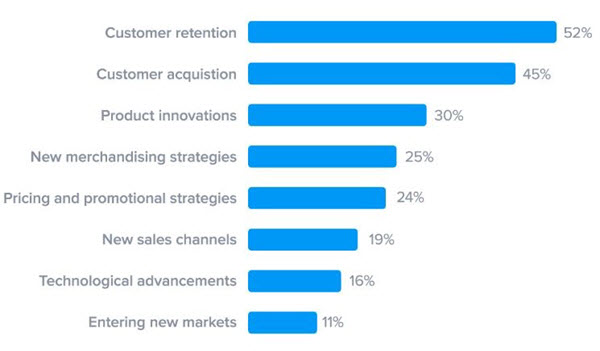
Loyal customers are also much more profitable than new ones. They generate more ROI and offer more opportunities to increase sales since they’re already familiar with your brand and are more likely to believe in new products.
Generating loyal customers depends on how much you know about what they want. You can provide answers by using online surveys. Don’t worry about seeming unprofessional, it’s natural for businesses to ask consumers directly what they want. You must of course, do this tactfully and in an engaging manner so as to drive responses.
You can also generate information through your customer service if customers have to reach out to complain and offer suggestions. This means having a customer support system that is always available and responsive right from the start.
Using live chat software on your website is advisable in this case. Most consumers, especially if they are Millenials and Gen Zs, will be more encouraged to reach out through live chat than any other channel. It’s immediate and ultimately reassuring.
For new businesses, attending to multiple customers in real-time can be challenging and time-demanding. Chatbots are a practical solution. With sufficient consumer research, you should be able to use chatbots to generate answers to at least 80% of consumer queries. Advanced queries would be redirected to you for response. You can then add these to your list of possible queries.
Rewards and Referral systems, Discounts, and Retargeting are ways to generate loyal customers. If you’ve gotten to that stage where you’ve made your first few significant sales, you can try and convince the customers and clients who made purchases to make more purchases and increase their belief in your brand using these methods.
Retargeting requires using an integrated tool that collects information from people who visit your site either through their browsing behavior or from products they purchased or attempted and failed to purchase. Email marketing and website ads tailored specifically for these people complete the retargeting process.
By using incentives to get them to drop their email addresses, you can build an email list of these customers, segmenting this list based on their product interest. Your subsequent emails can then be targeted to these segmented lists, containing special and relevant offers that are sure to resonate with the customers you targeted.
By using cookies to track customers’ browsing history, you can drive targeted website and social media ads that contain relevant product offers.
Discounts on your products and service offerings are not only enticing to customers, they can be vital to making them buy at all in the first place.
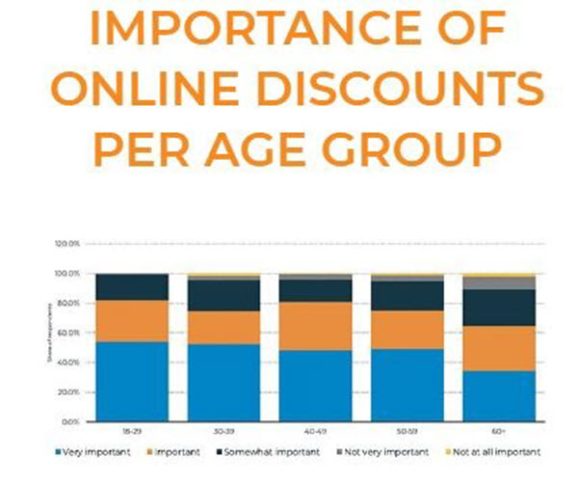
You must offer strategic discounts on your prices and offerings if you want to build customer loyalty.
Rewards and referral systems include using reward-motivated actions to engage customers and make them promote your brand. By incentivizing them to complete certain actions that are profitable to your brand in exchange for enticing rewards, you wouldn’t only make them loyal customers through the psychology of engagement, you could also gain more regular customers through them.
An example of a rewards and referral strategy would be asking that customers post your business or particular product offering on their social media posts in order to get a particular discount. The exposure and brand trust you’ll gain from such user-generated content are invaluable.
Using these strategies to build a loyal consumer base would mean you have greatly simplified and channeled your efforts and therefore, avoided an unintelligent use of your time and resources.
4. Humanize Your Brand
At the end of the day, a business is trying to communicate to people, and people respond best to other human beings. You must make sure your business has an authentic human element to it.
Part of this means not being afraid to express yourself in the day-to-day management of your business and when dealing with company personnel. The values you stand for, as long as they align with your business’ goals must be communicated not just through your memos and directives, but through your actions.
Seeing is believing, and your observable traits are part of the things that will make your employees and partners believe in your business. Other things will include your results, practices, and policies but it will be hard to convince people of this if you exhibit no visible confidence in your cause and beliefs. You must be the champion promoter of your company culture.
Most importantly, humanizing your brand means adding the human element at every point of communication with consumers. it’s not just enough that you provide value, you must also provide this value in an empathetic, engaging manner.
Your consumer touchpoints might include everything about your business except the in-house aspects. And even this, sometimes, could be strategically used as a humanizing element. By creating content that describes and showcases insider elements of your business, like your workflow and your staff, you can demystify your business to customers, making them understand and appreciate it more.
Businesses that don’t include personifying and engaging practices in their brand strategy usually have a smaller consumer base than businesses who do.
The logic is simple, consumers will always opt for brands they can immediately understand and relate to. This means you have to be honest with your values and the way you communicate with people. Consumers are demanding more human and authentic brands.
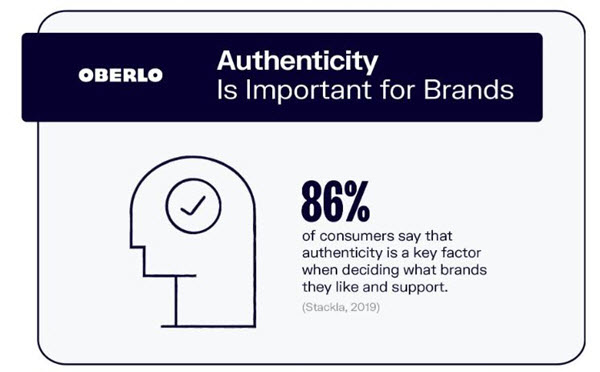
In a world with increasingly stiff competition, it’s important that you give yourself an edge by coming across as particularly understanding and relatable to consumers.
Your content, your brand’s visual elements, your site, your services and products, your customer service are areas where you can do this.
For example, the colors, graphics, and media you use as your visual identifiers should uniquely reflect your business’ values and, at the same time, connect to your target audience on a psychological level.
You should create content that contain descriptions that relate to problems or situations your customers are experiencing and offer possible solutions to these problems.
Your products and services should be designed such that every member of your target audience can use them without getting frustrated. In essence, they shouldn’t be too complicated to operate. Humans are moving rapidly towards simplicity, so it becomes a vital component to building consumer convenience and subsequently, trust.
Create very comprehensive product manuals and content that describe the how-to and easy-to-use processes of your products.
Simplicity must also be applied to your online store. Whether it’s a website that offers software and services or it’s an online shop that sells products or an app, your interface and layout must be confusion-averse and easy for consumers to use.
Use ecommerce platforms or website and app builders that allow you to create intuitive and convenient interfaces that make navigating around your store easy. Failing to do so would mean risking frustrating consumers who try to browse your platform. This could lead to them leaving your site without taking decisive action or going further down your sales funnel.
You can further humanize your business by sharing positive and encouraging content and being supportive in tough times. Organize philanthropic acts whenever you can afford to and plan these strategically in such a way that they benefit your business.
By successfully creating a positive and empathetic brand identity, you would have increased your chances of building a loyal consumer base.
5. Learn The Basics And Trust The Process
Of course, you would probably say, this is only natural. While that is true, you might be shocked at how easily a lot of entrepreneurs fail to properly adhere to the basics of starting an online business.
Because the keyword is “online” and there is usually no immediate or even actual need for traditional business components such as an office building or white-collar working hours, people tend to forget that an online startup is still an actual business, and thus, should be treated with the same intensity as one.
Like a traditional business, an online business has proven guidelines any entrepreneur should stick and adhere to. Trying to find shortcuts around these basics or even ignore some of them usually leads to more failure than success.
And for this particular reason, you should watch out for individuals that promise “get rich online quick” schemes that usually have unrealistic timelines for achieving business success.
Running an online business is not necessarily harrowing, but it’s still a long and demanding process that needs devotion, humility, and understanding.
Yes, there are people you can learn from who have taken the same path as you, and have advice that can help you avoid making their own mistakes. You should definitely network with such leaders and make acquaintances of them.
But here’s the thing, these people didn’t “do it fast” or achieve success in unrealistic timelines. They followed the process, trusted it, and in the process, uncovered more knowledge and better strategies. They learned as they grew. That’s what you should do.
Here’s an overview of the basic guidelines you must follow to start your online business on the right foot:
- Find a niche and research the viability and profitability of that niche/product. You need to be sure about the details of your products and the possible dynamics involved with making that product or service available to consumers.
- Research the market and your competition. You need to be familiar with market trends and find out the best practices from your competitors.
- Define your target audience. You need to research and discover the personality of your ideal customer so you can tailor your product or service to suit their needs.
- Learn the laws that control your online business. There are various legal restrictions and considerations like consumer privacy, shipping laws, tax, zoning laws, etc., that you must be aware of if you don’t want your business in the deep before it even starts. Consider employing legal services to help you with this process.
- Source your products and establish a delivery system. Find out quality suppliers and vendors and learn the best tactics for bargaining, purchasing, and storing your inventory. You must choose a cost-effective delivery system with consumer convenience in mind.
- Choose and launch your website or ecommerce platform. Whatever platform you choose has to be smart, engaging, and provide an intuitive and convenient browsing and buying experience for customers. Devise winning strategies to launch your site in front of your first audience.
- Drive and analyze traffic and conversions to your website. Email, social media, and website marketing would be essential to advertising your business and getting more consumers interested in your products. Make sure to use analytics tools that help you measure the success of your strategies so that you can know what to improve on.
- Continue to learn and scale. After you’ve completed the basics and set up your foundation, you can keep learning and improving on your strategies to increase your ROI and annual growth. You will need to constantly keep up-to-date with cutting-edge information, practices, and tools. You also need to stay current on consumer behavior so you can keep improving your services.
Stay Informed
Success is impossible without information. At the end of the day, that is what it all boils down to, the access to information and a true desire to improve and provide value.
Some of the oldest business models in the digital era have kept at the top of their game by staying informed on the best practices and even seeking knowledge that will make them pioneers.
By learning and applying valuable information and developing the hide to take calculated risks and learn from your mistakes and strategies, you would have set the foundation for a successful, sustainable online business.
Author Bio:
Martin Luenendonk is a 3x serial entrepreneur with a deep passion in digital business models and marketing innovations. He is the Founder at cleverism.com and founderjar.com.



